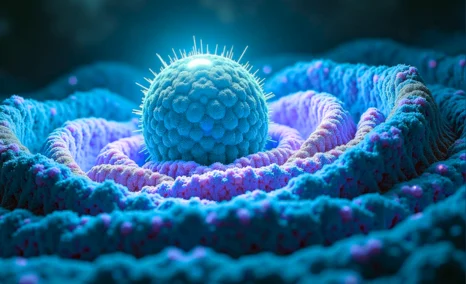HER2 Expression and its Dynamic Functional States
Sep 14, 2016
A research published in Nature recently identified some dynamic functional states in the breast cancer cells of HER2 breast cancer. The research postulates that women who have advanced oestrogen-receptor (ER)-positive/human epidermal growth factor receptor 2 (HER2)-negative breast cancer, are prone to acquire a HER2-positive subpopulation after multiple courses of therapy. This acquired heterogeneity during the cancer evolution was previously unknown, and to find out the same the researchers evaluated women with ER+/HER2− primary tumours. The results show that the HER2− circulating tumour cells have shown activation of Notch and DNA damage pathways, which results in resistance to cytotoxic chemotherapy. HER2+ and HER2− circulating tumour cells are able to convert among themselves and produce daughter cells that are opposite within four cell doublings. Even though both HER2+ and HER2− tumour cells found in circulation were comparable in tumour initiating potential, differential proliferation favours the HER2+ state, while oxidative stress or cytotoxic chemotherapy enhances transition to the HER2− phenotype. Thus, these results point to some very distinct yet interconverting phenotypes present within patient population and also contributes in the progression of breast cancer and acquisition of drug resistance.
Downloads
Click Here To Get the Article in PDF
Recent Articles
- DARZALEX FASPRO Quadruplet Regimen Demonstrates Striking Advancements in Treatment Outcomes for N...
- FDA Approves AstraZeneca’s Enhertu; Bayer Wins FDA Approval for Prostate Cancer Therapy, Nubeqa; ...
- Business Cocktail
- Edwards’ Sapien 3 with Alterra Prestent; Koios Medical’s breast, thyroid cancer-spotting AI; Line...
- GE Healthcare-Optellum’s collaboration; Ocugen’s Covid-19 vaccine trial; Blueprint to acqui...
Downloads
Article in PDF
Recent Articles
- Novo Nordisk Gains US Approval for Oral WEGOVY; Windward Bio Strengthens Immunology Pipeline With...
- Delveinsight launched novel Drug Pipeline reports
- Progenics got FDA Approval; Curcumin to cancer cells
- Head and Neck Squamous Cell Carcinoma -Pipeline Insights, 2016
- Moderna’s Phase III Trials for Dual Influenza and COVID-19 Vaccine; Almirall’s Klisyri FDA Approv...




